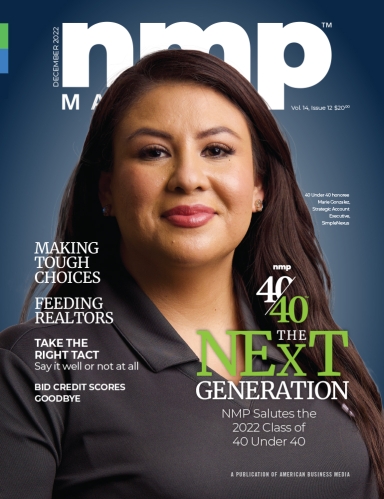ALTA CEO Diane Tomb agreed. “Paid monitoring services send alerts to customers when any type of document is filed,” she told me. “These companies are not title insurers and typically don’t pay to help protect a consumer’s property rights.”
Instead of subscribing to Title Home Lock or another similar service, savvy owners can check on their own with the recorders office as often as they like. And savvy lenders can advise them of the service — or even offer it themselves. In some places, you can sign up to receive notifications if any type of document is filed against your property’s address. Not every county offers the service, but it is gratis where they do.
Maffucci, the Philadelphia attorney who hangs his shingle with Semanoff Ormsby Greenberg & Torchia, says a forged degree conveys nothing because it is not legal. “A false deed does not actually cause the current owner to lose his property rights,” agreed ALTA’s Tomb. And title pro Nathan Bossers of Boston Title says, “If you went to court 10 times, you’d win 10 times out of 10.”
Federal Relief?
Nevertheless, title theft can have a “devastating impact” on the owner and one he “cannot simply ignore,” Maffucci told Smart Business. That means you’ll have to hire an attorney and file suit to clear the title. And that could be a lengthy, expensive process.
Recently, two lawmakers have introduced federal legislation that, while not putting outfits like Title Lock out of business, would go a long way toward stopping deed fraud, thereby making monitoring services unnecessary. The GOOD Deed Act (for Good Documentation and Enforcement of Estate Deeds) from Reps. Emanuel Cleaver II (D-Mo.) and Dwight Evans (D-Pa.) would establish the first federal definition of deed fraud as well as guidelines for sentencing those who commit the crime.
The measure also would require the FBI to add deed fraud as a category to the Uniform Crime Reporting program. And perhaps most importantly, it would establish a $10 million annual program to assist states in the prevention, detection, investigation, and prosecution of the crime. Those receiving funding would be required to amend their laws to require identifiable information on individuals notarizing and filing deeds, such as fingerprints, photographs, and videos.
More recently, and perhaps of more consequence to mortgage lenders, is the decision by Fannie Mae to join Freddie Mac in accepting attorney opinion letters — “under limited circumstances” — in lieu of title insurance. The move is part of the Biden Administration’s effort to make housing more affordable. But the more immediate result is a turf war between innovators pushing AOLs or facsimiles thereof and insurers attempting to keep their not-so-little piece of the pie.
There’s no doubt that attorney opinion letters will be less expensive. United Wholesale Mortgage recently announced its new TRAC system that removes the need for a lender policy altogether. UWM will review the title and closing docs, make sure the title is clear and help facilitate the closing process. The cost: A flat $350.
Vendor SingleSource offers a standardized AOL that it says is scalable and affordable for a flat fee for refinances and 30-80 percent less than the cost of title insurance on purchase money loans. iTitle Transfer’s closing platform runs $1,500 on average for a $411,000 loan, eliminating the need for $3,085 for title coverage and related costs.
Title insurance? Well, it often runs into the thousands of dollars, especially when the borrower elects to purchase an owner’s policy on top of the required lender’s policy, as about four out of five do, ALTA tells me.
The savings, then, is real and will cut closing costs significantly. But at what price? After all, attorney opinion letters don’t cover undisclosed tax liens, homeowner association assessments or liens for unpaid child and spousal support, among a myriad of other possibilities. AOLs “might be saving (borrowers) a few bucks on the front end,” says ALTA’s general counsel Steve Gottheim, “but (could be) costing them a lot more money on the back end.”
iTitle’s Ted Sprink disagrees. Sprink, who spent 25 years in the title business, points out that three out of every four title exams reveal a clean title, so what’s the point of spending all that money? He also notes that the field’s 3% claims rate “suggests little correlation between insurance pricing and risk.”
(According to ALTA, the claims rate was just 2.4% in 2020, the last year for which data is available. But between the Great Recession years of 2008 to 2011, title claims ran in the 10-11% range, with most claims involving fraud or forgeries, mistakes in the public records and missed liens. To put the claims rates in perspective, on average. only 6% of all owners file a claim on their homeowners’ policies every year, according to the Insurance Information Institute.)













